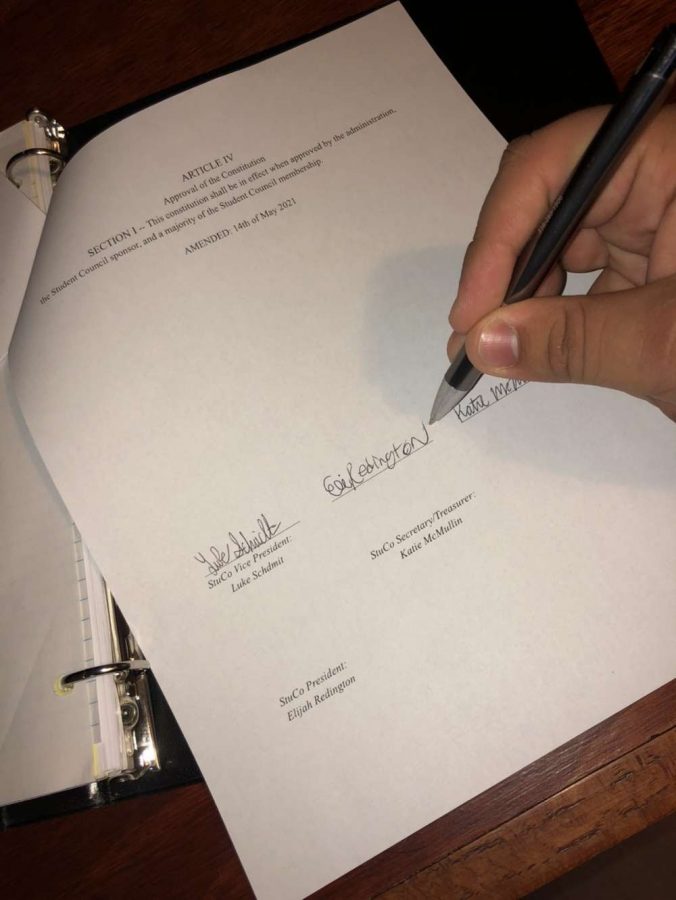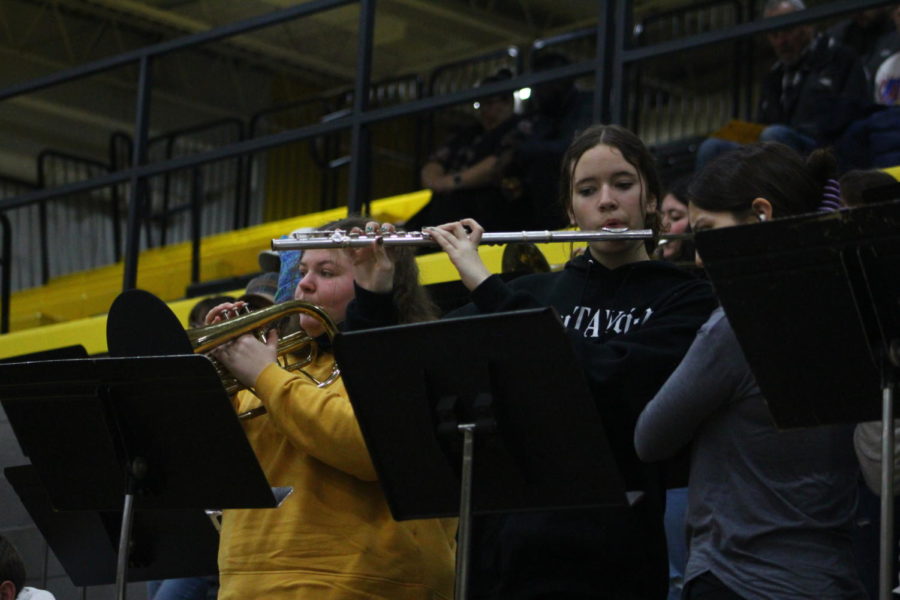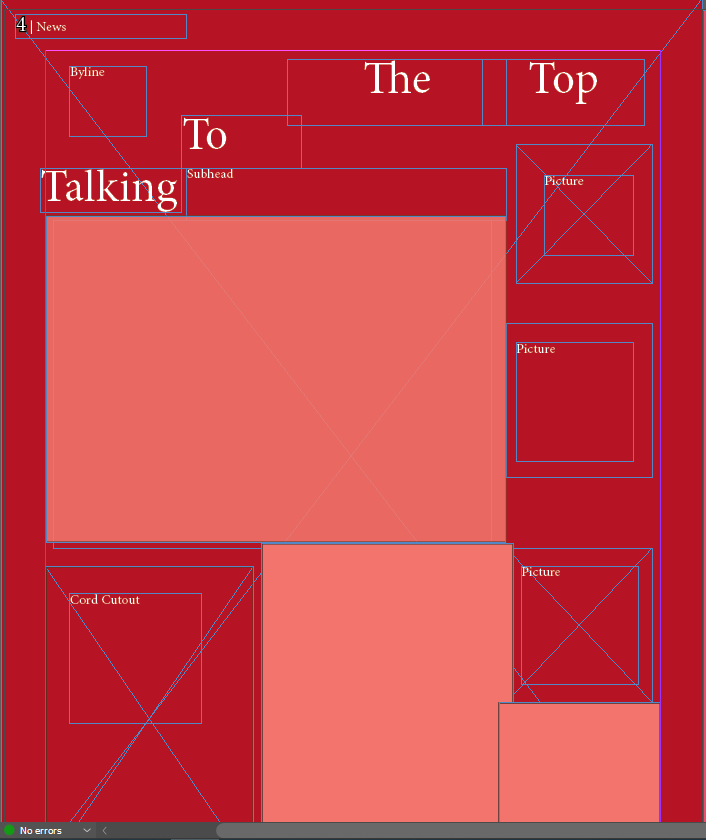StuCo passes new constitution
May 21, 2021
On May 16, the amended NHS student council (StuCo) constitution was passed after four years in progress. The amendments were signed by the StuCo executive president, vice president and secretary/treasurer, making the changes official.
The amendment process began in 2016, started by former student body executives Eli Blaufuss, Kate Sebes and Erik Jantz. The old constitution was handwritten and had to be copied word for word onto a Google document. Current student body president Eli Redington was a freshman at the time and contributed by getting input on the amendments from students outside of StuCo.
“It has taken us four long years of consistent changes and debates among the council as well as going through a change in advisors and administration. We attempted a student body vote in 2018 which received 500 responses. Of those 500, 50 voted yes to the amendments,” Redington said. “That had to do with the circumstances at the time and the student perception of the administration who had sent out our poll. In the 2019-2020 school year, we were prepared to start another student body vote but this had to be canceled due to COVID-19. This year with 123 votes, we passed with only five no’s, exceeding the four-fifths threshold required for an amendment.”
One of the largest amendments to the constitution covers the executive president’s power of veto. The amendment states that the power of veto should be exercised when the president believes that the Student Council has incorrectly voted on an issue or made an error of judgement. The said veto can be overturned by a two-thirds majority vote. The bulk of the amendments do not directly affect the student body, but one modification made may affect any student planning to run for StuCo. In the event of a tie for positions in class office, both candidates shall assume a representative position on the council. In the event this tie shall take place for a class officer position, it will be left to the sponsor’s discretion as to who will hold what position. Executive secretary/treasurer junior Katie McMullin has taken a bigger part in helping with the constitution this year as an executive, though the only addition to her position states that the secretary/treasurer will make a report to the council about its financial condition at every meeting.
“The amendments are to help solve issues that may arise in future years. Some of the amendments regarded presidential powers such as vetoes and impeachment, process of resigning and replacement of position, and what will happen if there is a tie for class representatives,” McMullin said. “Almost all of the amendments will primarily affect the student council, although a change in positions will affect the student body because that means they are being represented by different people. I believe the amendments are important because we have put some of these principles in place already in the past few years and we have become better from it. These were a big deal because it makes certain things possible that allows us to have the power we need to be the best we can.”
Other amendments to the constitution involve the removal of StuCo members, the resignation of any class representatives or officers, the powers held by the council and the requirements for new amendments to be added. Redington says that the amendments were much overdue as the original constitution was written during if not prior to when the last StuCo advisor was running the council.
“The reason we were having these amendments was to do three things; set in writing any questions of uncertainty that had come up in past years, remove the inaccuracies of the constitution that did not fall under StuCo’s jurisdiction and create new powers or processes we saw as being overdue,” Redington said. “We began operating under the new constitution for the most part in 2018 because there were no substantial changes that would impact the school. However, this new constitution will do a great job of avoiding some of the hassle and confusion that seems to come after every election cycle and will provide much needed answers for future StuCo advisors and presidents.”





















